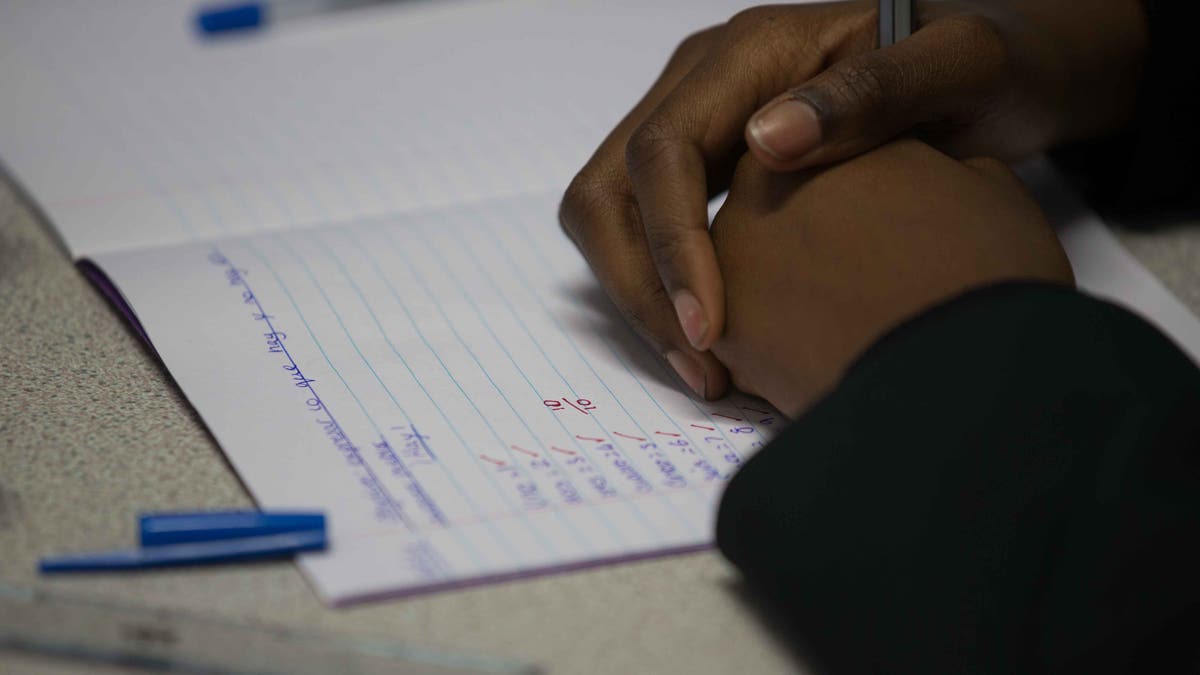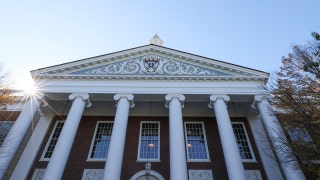
BRISTOL, UNITED KINGDOM - FEBRUARY 26: Pupils take part in a Spanish lesson at the Ridings Federation Winterbourne International Academy in Winterbourne near Bristol on February 26, 2015 in South Gloucestershire, England. Education, along with National Health Service and the economy are likely to be key election issues in the forthcoming general election in May. (Photo by Matt Cardy/Getty Images) (2015 Getty Images)
To borrow a quote from Game of Thrones, which recently had its season 5 premiere, “Winter is coming.”
This is what can happen in Texas, our economy could start to freeze up, if we limit educational opportunities for undocumented students in Texas by passing Senate Bill 1819.
It would end the dreams of thousands of Texas high school graduates, who have lived here since they were children, and rely on in-state tuition regardless of immigration status.
The push to rescind 14 years of in-state tuition to these students, known as Dreamers, will greatly impact the Texas economy — a college education would become a bigger financial burden for them, reducing their chances to enter the job market at a professional level.
According to the National Immigration Forum, it costs $23,000 to deport one immigrant with or without a criminal record. Why not invest that in their education?
The National Conference of State Legislatures reports that only 18 states offer in-state tuition. Three states – Arizona, Georgia and Indiana – don’t offer it at all, and Alabama and South Carolina prohibit undocumented immigrants from enrolling at any public postsecondary institution.
- In Puerto Rico, Jeb Bush pushes statehood, says he’s proud of ‘immigrant nation’
- Border Patrol uncovers sophisticated drug tunnel on U.S.-Mexico border
- Deportations continue to decline under Obama, lowest numbers in a decade
- Baltimore’s growing Latino community watches tensions unfold with empathy, sadness
- Chris Christie reiterates he’ll never give drivers licenses to undocumented: ‘I’m not doing it’
- Vote mi amigo: Spanish skills become a plus factor for GOP hopefuls in 2016 race
- Kansas school district copes increased ethnic diversity from influx of immigrants, refugees
- After media uproar, ICE halts release of immigrant with drug-resistant tuberculosis in Arizona
- Democratic National Committee hires new Latino outreach director
- NY becomes first state to offer English lessons via cellphone
- Little hope seen for child migrants without lawyers trying to remain in U.S.
- Indigenous groups in the U.S. struggle to retain, and relearn, dying languages
- Best pix of the week
It’s going to hurt Baby Boomers and retirees who, whether they know it or not, benefit from the taxes paid by these undocumented youth. And if we limit their educational and income opportunities they will pay less in taxes in the future.
According to David Payne and Glenn Somerville, The Kiplinger Letter, “Starting in 2016, the number of retirees will outpace young labor entrants between the ages of 18 and 29 for the first time in memory and the gap will continue to expand every year for at least a decade. Immigrants and automation – yes, including robots – will help to pick up the slack, but not nearly enough.”
One of the top 10 myths about undocumented immigrants is that they don’t pay state, federal, local, and income taxes, or pay into Social Security. Actually, they pay anywhere between “$90 and $140 billion a year in federal, state, and local taxes,” and the Social Security Administration “grew by $20 billion between 1990 and 1998.”
Wouldn’t Texas be shooting itself in the “boot” by not supporting the education to develop the skills and knowledge necessary from Dreamers who are just as American as those of us who were born here?
Let’s reap the rewards by making sure Dreamers have affordable postsecondary education to help fill the vacant professions Baby Boomers are leaving behind. Doing so creates a strong workforce that pumps more tax dollars into the Texas economy and will ensure that Social Security and Medicare can continue to care for our ever growing aging population.
The Hispanic population is likely to outnumber the white population by 2020, and it’s “projected to make up the majority of the Texas population in 2042.” It would serve elected officials well (especially at the voting polls) if they win this group over instead of alienating them with bills like Senate Bill 1819.
I know some people don’t want to reward illegal immigration by providing benefits.
According to the National Immigration Forum, it costs $23,000 to deport one immigrant with or without a criminal record.
Why not invest that in their education?
These students who only know Texas as their home and want to grow up to be successful and productive adults. Many were brought here by their parents in search of a better future, while others were brought here to escape horrible circumstances.
As someone who leads an afterschool community center that provides academic support to disadvantaged youth in West Dallas for grades K through 12, and where 98.8 percent of the students served are Hispanic, I don’t know if I can tell these kids that their chances of going to college is about to get a lot harder if they aren’t legal residents of Texas.
Several years ago, a mentor and his student, asked to meet with me to discuss his future. In-state tuition was already in place but the Obama Administration’s Deferred Action for Childhood Arrivals (DACA) didn’t exist yet.
The student, well-mannered, hard-working and bright, aspired to become an accountant just like his mentor. But as an undocumented immigrant, brought to Texas at a very young age, he knew that he wouldn’t be able to legally work in Texas.
He told me, “Dolores, what’s the point of working hard to get good grades in school to attend college when I won’t even be able to get a job when I’m done? I won’t have a future anywhere.”
The good news is that he graduated from high school, enrolled in college to study accounting, and took advantage of President Obama’s DACA program in 2012.
Today he is attending the University of Texas at Arlington but is now pursuing a degree in electrical engineering. Still his future is uncertain as DACA is now being challenged in the courts.
Imagine if he also had the burden of knowing in-state tuition was unavailable to him. It would have been difficult for me and his mentor to convince him to continue his education and pursue his dreams.








































